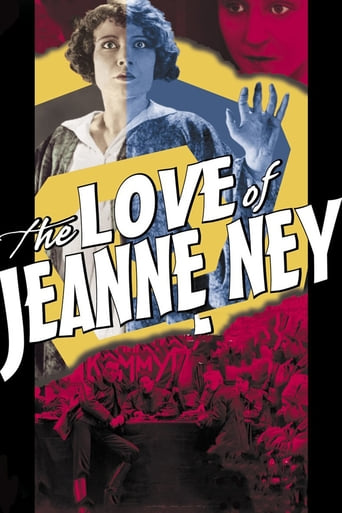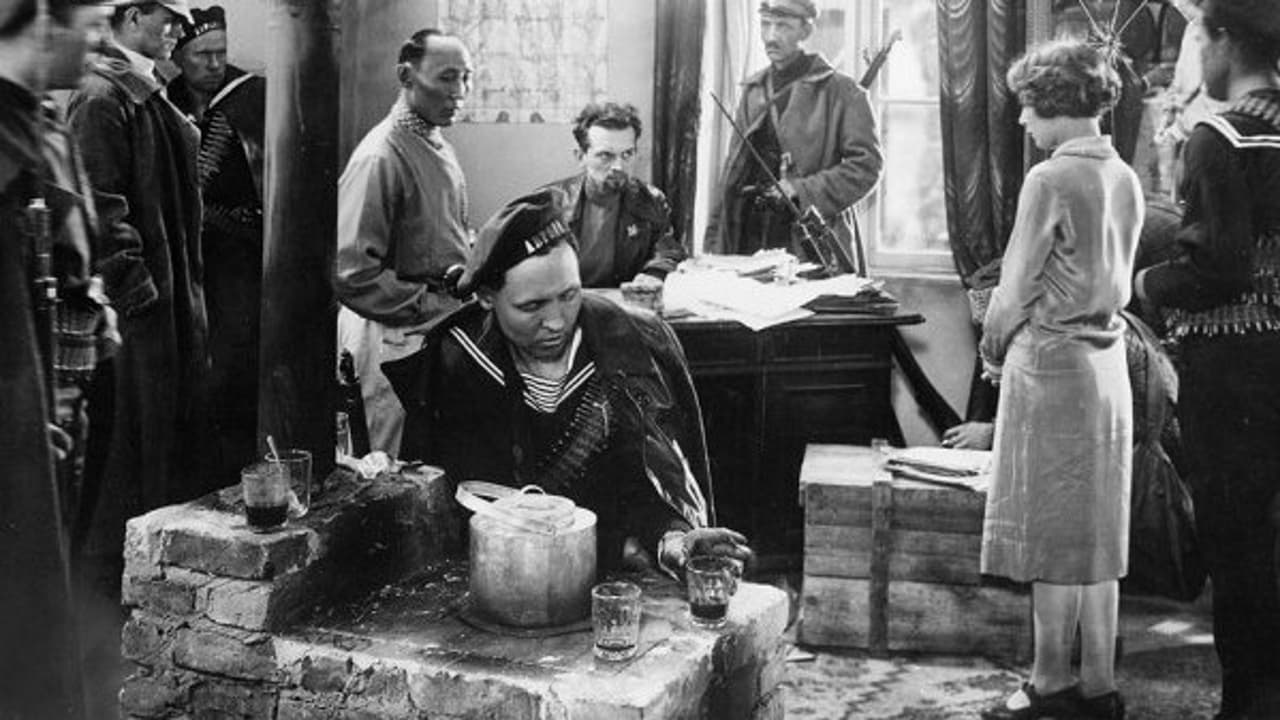Edgar Soberon Torchia
Georg Wilhelm Pabst (or GW Pabst, born in 1885) was one of the great German filmmakers during the silent period. He established his name with his first film, the drama of greed "The Treasure" (1923), but with the third one, "The Joyless Street" (1925) he revealed himself as a major force of the "New Objectivity", beyond the distortions of expressionism, touching the social problems of Germany, between the two great wars. He continued with "Mysteries of a Soul" (1926) and "The Love of Jeanne Ney" (1927), whose recent vision motivates these notes; then gave a masterstroke with "Pandora's Box" (1929), which led Louise Brooks to immortality, and when sound came, in 1930 he released the antiwar drama" Frontline 1918 ", which was banned by the Nazis, made the film version of "The 3-Penny Opera" (1931) by Brecht and Weil, followed by a drama of Franco-German solidarity, "Camaraderie" (1931); an incursion into fantastic cinema with "L'Atlantide" (1932), and his own reading of Cervantes' "Don Quixote" (1933). Although he did not stop working and made more films of value, Pabst saw his career affected by the rise of the Nazis, when he had to move between Berlin, Paris, Hollywood and Vienna, where he died in 1967. The romantic account of "The Love of Jeanne Ney" goes from Ukraine to France, following the daughter of a French diplomat who is in love with a Bolshevik. The couple reunites in Paris after several vicissitudes. The characters include Jeanne's uncle, owner of a research firm, his blind daughter (Brigitte Helm, the Maria of "Metropolis"), a North American millionaire who has lost a invaluable diamond, and a Russian informer who sells to the highest bidder. There are moments of great visual force, as the scene in which the blind girl discovers the corpse of her father; and the initial scenes of the Russian revolution. However, the reason that motivates me to write about the film is, above all, extraordinary actor Fritz Rasp (1891-1976), as the ruthless snitch, fearsome as none. Rasp is an icon of the Teutonic villain: from the first time I saw him as the overwhelming "Thin Man" in Lang's "Metropolis," serving the owner of the city, every time I see him in another film, his characters are not to be trusted and his presence is intimidating: as the colonel in "Spies" and as "The Man" in "The Woman in the Moon", both by Lang, or as the Jew J.J. Peachum, "King of the Beggars", in Pabst's "The 3-Penny Opera". In "The Love of Jeanne Ney" Rasp builds the disgusting character of Khalibiev, an informant who fingers the Bolsheviks in Ukraine, and in Paris not only does he stalk Jeanne and her lover, but uses Jeanne's young blind cousin to concrete his evil plans. As Pabst, Rasp also continued working during the Nazi period, although not acting with the frequency of the past. He had a long career, that included playing the lead in a film of the "new cinema" of West Germany, "Lina Braake" (1975), which was his last appearance in cinema.
willcarson4358
Just saw this film and was very impressed with the style and story. Like all the others who have commented, I was immediately drawn in to the story and characters. Even though there were minimal subtitles, the story was not difficult to follow. It is a different way to tell a story where body movement and gestures replace the voice. The orchestral soundtrack was well matched to the mood and action. I had never heard of this film and only found it by accident when searching on whatever became of Bridgit Helm who did not pursue acting after (?) this final film. It is also a historical drama and has interesting details of life in that time. Definitely one of the great films of that era.
Reichswasserleiche
First of all, I think that this is the best Pabst film I've seen. I really love Die freudlose Gasse, but there is something about Die Liebe der Jeanne Ney that is so much better. In Pabst's Die freudlose Gasse, I thought that Pabst did a great job experimenting with slow motion, different film stock, and lighting, with Geheimnisse einer Seele, Pabst did a terrific job with special effects/various techniques (perhaps maybe even overdoing it), but with Die Liebe der Jeanne Ney, I think he was able to really find a happy medium. He used various techniques he used in Geheimnisse einer Seele but didn't overdo it and used them to their full advantage by using them as a plot device that fit in seamlessly with the story. Whereas Die freudlose Gasse has the potential to be perfect, Die Liebe der Jeanne Ney has almost reached perfection. Maybe Die freudlose Gasse appears to be a bit rough due to missing parts and scholars/film archivists not knowing the order of the scenes, thus restored versions of the film don't guarantee that the presentation of the film is that close to the original, but Die Liebe der Jeanne Ney really was a step forward. I'm not making sense and it's a bit hard for me to try to explain my thoughts, but what I'm trying to get to is that this film was a huge improvement from his previous films.The film is a (melo)drama, but it had me intrigued almost from the beginning. I hated that Pabst started the film with Fritz Rasp because Rasp is truly a hideous man. I noticed that he always plays the sleazy guy in films and his face is really perfect for that.Jéhanne and Helm's acting is so natural and beautiful, particularly Helm's, but Rasp overacts in almost every scene. What's the point of slowing getting closer to a girl and then all of a sudden grabbing her? Jéhanne plays the sweet, innocent, and somewhat naïve Jeanne and although I would usually be annoyed with characters like Jeanne, I couldn't help but like her. The story is of lovers who are madly in love with each other yet something happens that separates them. Then another incident occurs that could separate the lovers but a nice man comes along and patches things up. Misunderstandings happen, murder, and all other great things that probably happen in soap operas occur, but the film implies a happy ending. I really adore this film, but my biggest problem with it is the story. Although highly enjoyable, I wonder why the film leaves Gabrielle with an unhappy ending and doesn't even return to her after her father's death. Out of all the characters in the film, I think she has suffered the most and deserved a happy ending. Jeanne deserves it as well but Gabrielle was such a tragic figure that I couldn't help but almost cry when she found her father's dead body. I also didn't understand why Gabrielle first flinched from Khalibiev's (Rasp) touch but then somehow fell in love with him. I thought that she was able to see, despite being blind, behind is "friendly" exterior, but she somehow fell for him because he brought her flowers and acted as if he really loved her when all he wanted to do was seduce Jeanne. Jeanne was never comfortable around Khalibiev and I kept looking forward to a scene when she would tell Gabrielle that she is not comfortable with Gabrielle's engagement with Khalibiev but that never happened. The final shot is truly a beautiful one, but it's too simple to wrap up everything: how will Jeanne and Andreas (Henning) be together when there are political problems surrounding their relationship? One of Die freudlose Gasse's criticisms is that the melodrama overpowers the message behind the film and that applies to the film perfectly. I don't agree much with the criticism for Die freudlose Gasse, but the happy ending truly seems tacked on like it just needs to happen. But things really aren't that simple! But nonetheless, that final shot means multiple things, which is why I love it. The obvious one is that the murderer has been caught, but the diamond also can be foreshadowing Jeanne and Andreas' marriage, and perhaps maybe it is a happy ending for Gabrielle; since the diamond was found by her father's company, most likely she would be able to have the reward money.After watching this film, I really didn't understand why Die freudlose Gasse got all the attention out of the many films Pabst directed. Is it because Die freudlose Gasse addresses the political, social, and moral problems in Germany/Austria directly whereas Die Liebe der Jeanne Ney brings forth what was going on around the time the film was made but is overshadowed by the melodramatic story? I just think that this film is one of Pabst's strongest silent uvre because everything fits so well, but that's just my opinion.
eibon04
Love of Jeanne Ney(1927) is an involving Wartime melodrama with images that impress. Definitely the work of a great director in G.W. Pabst who is the second greatest filmmaker in German Silent films right after Fritz Lang. Includes a post Metropolis role for Brigitte Helm. Acting is very good and the set designs are some of the best in Silent cinema. A downbeat film with a contrasting happy ending.


 AD
AD


